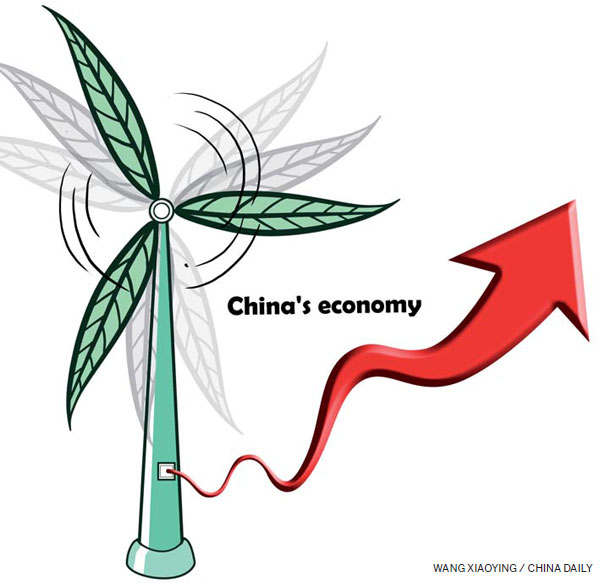Countering climate change: Towards an eco-civilization for all
- By Dai Bingguo and Kevin Rudd
 0 Comment(s)
0 Comment(s) Print
Print E-mail China.org.cn, September 21, 2015
E-mail China.org.cn, September 21, 2015

Five years after Copenhagen, we see today an unprecedented global effort to secure a successful outcome for the global climate summit to be held in Paris this December. Much progress has been made. But much more still needs to be done. It will also require a deep attitudinal change for all countries on the core, underlying question of sustainable development.
Much has happened since Copenhagen. Many Governments, including the United States, China, India, and the European Union, are working hard to forge agreements to help prevent a global temperature increase of more than 2 degrees centigrade. The focus is two-fold: on securing voluntary emissions reduction commitments from all significant economies, and on funding climate change adaptation in the poorest and most vulnerable countries.
Yet, the hard reality is that according to recent research by the Grantham Research Institute at the London School of Economics, current national commitments on emissions reductions would still result in an average temperature increase of 3.5 degrees this century. This would have untenable consequences for the planet. Much, much more remains to be done.
Beyond the formal negotiations in preparation for Paris, parallel emphasis is also now needed on the “softer” components of sustainable development and climate change mitigation. These include the behavioral patterns of individuals and firms. In part this relates to policy prescriptions on carbon regulation and carbon pricing. But it also includes simple but effective public education on the impact of discretionary decisions by individuals on the natural environment, and how that behavior can change. This is not just a change in policy settings. It is also a change in culture.
In this respect, China is making a fresh national effort. China’s “Eco-Forum Global” met in July 2015 in Guiyang. Through this increasingly reputable forum, the Chinese government is seeking to develop its own concept of sustainable development – what China calls “eco-civilization”. This flows from the work of the UN Sustainable Development Goals, to be adopted by the international community this September. It aims to embed the concept and practice of sustainability across the entire economic development spectrum. China has now adopted this concept of “eco-civilization” as formal state policy, with the objective of dislodging long-entrenched attitudes towards economic development embedded in a deep psychology of “development at any cost”.





